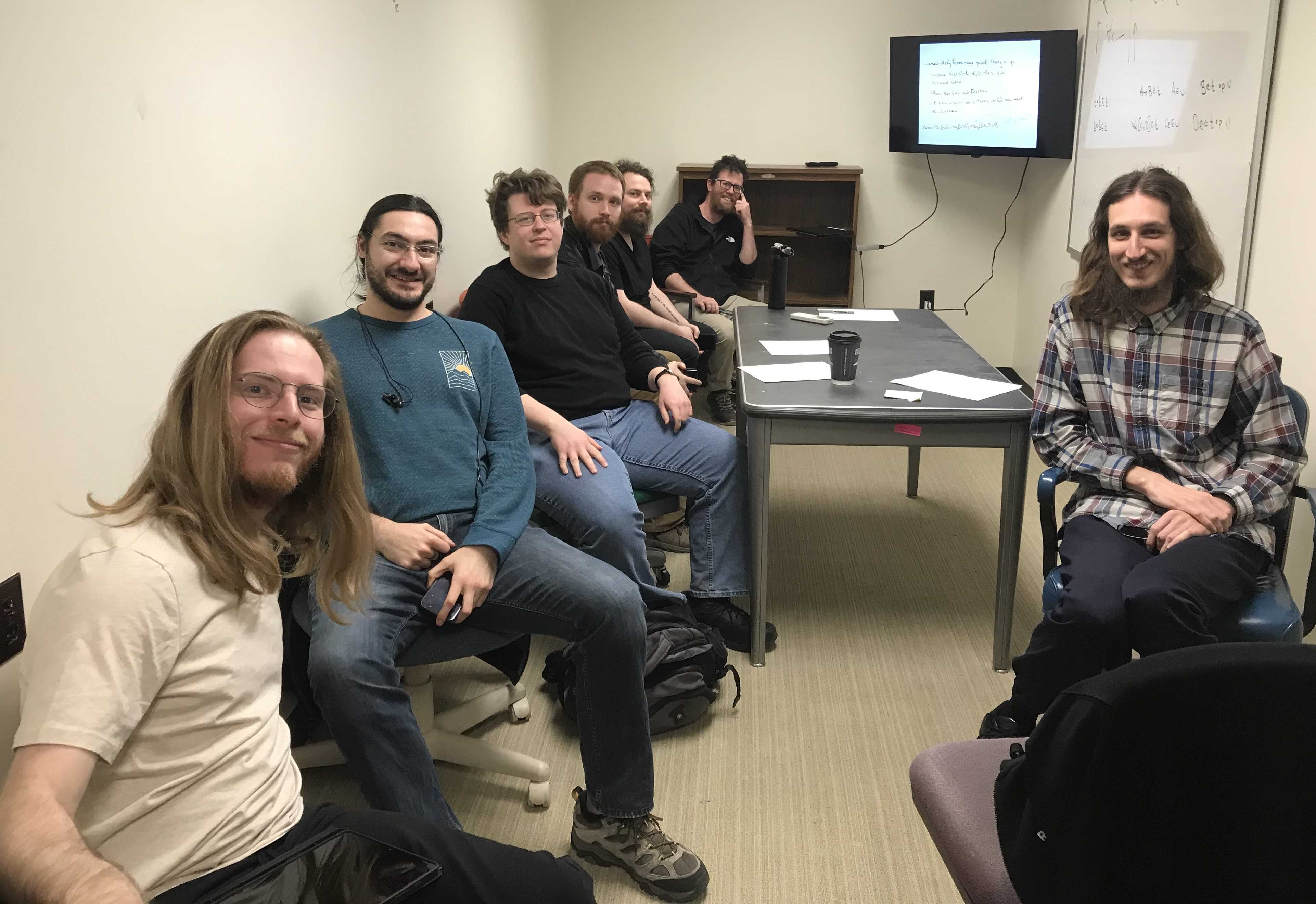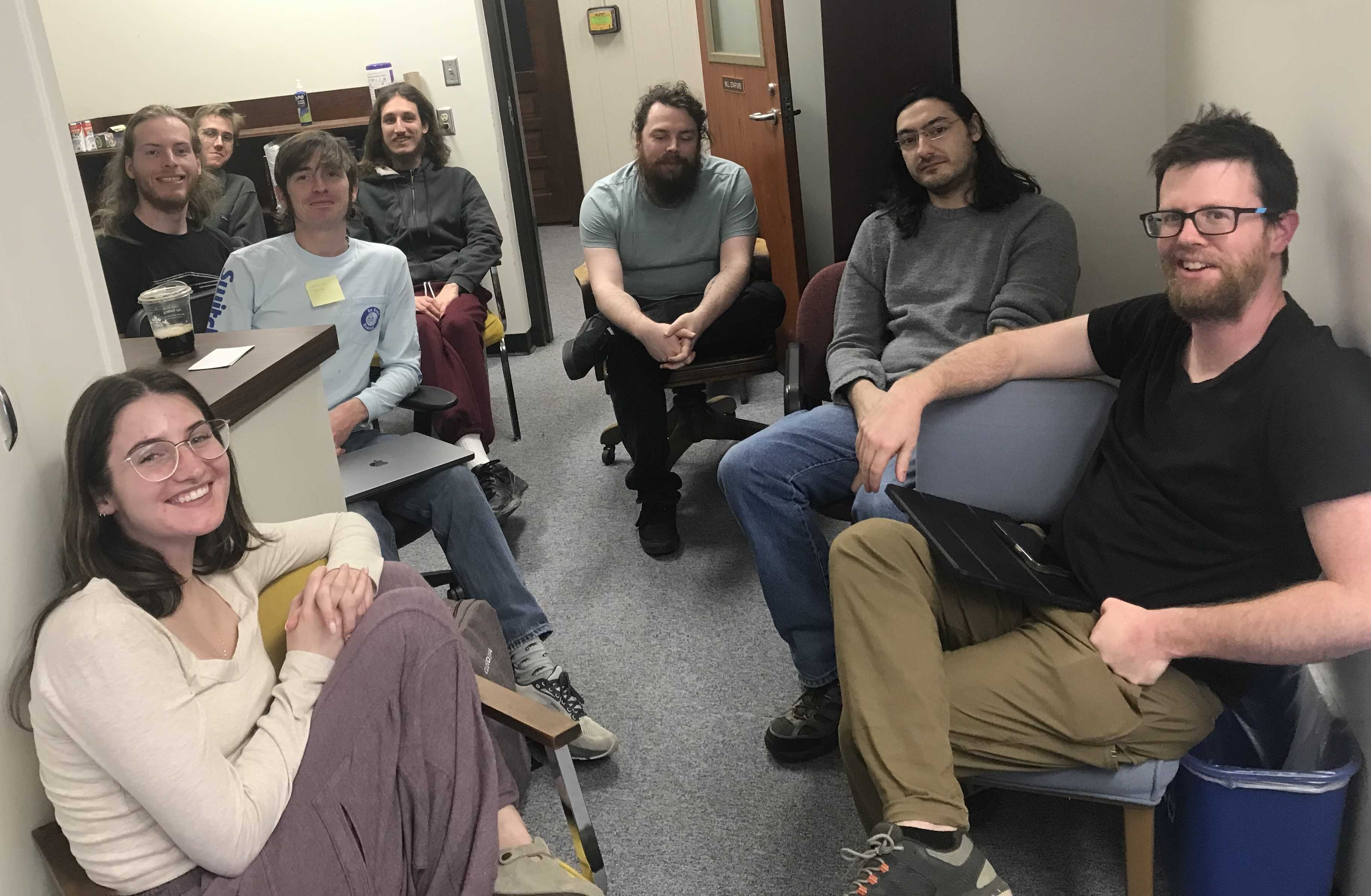Events
Colloquium Series/Guest Lecturers
April 4, 2025; 3:30 p.m. Dickens Hall 207 Teresa Kouri Kissel, "Directional Analysis and Conceptual Engineering"
March 7, 2025; 3:30 p.m. Dickens Hall 207 Kim Soland, "Representational Unmoored"
February 28, 2025; 3:30 p.m. Dickens Hall 207 Tina Botts, "The Substance of Substantive Due Process: Autonomy & the Abortion Debate"
February 21, 2025; 3:30 p.m. Dickens Hall 207 Roy T. Cook, "What is Spider-man's Real Name? Marvel Comics and Fictional Journalism"
Octber 17, 2024; 4 p.m. Hale Library Room 581 Jeff Behrends, "Cultivating an AI Ethics Ecosystem"
Octber 11, 2024; 3:30 p.m. Dickens Hall 207 Guest Lecture Hannah Rubin, "How Knowledge Brokers Shape the Evidence-Based Policy Landscape"
September 23, 2024; 2:30 p.m. Regnier Forum Regina Schouten, "The Philosopher vs. the Activist: In Defense of John Rawls' Method for Learning about Justice" This lecture is hosted by the Department of Political Science.
News
KSU Philosophy Emeritus has the number one aesthetics paper! Jim Hamilton's " 'Illusion' an the Distrust of Theatre" is the all-time most read article from JAAC, the Journal of Aesthetics and Art Criticism (https://cdn.ymaws.com/.../resmgr/Newsletters/newsletter.pdf) Congratulations Jim!
Professor Mahoney is a foreign faculty advisor for students at FACULTY OF PHILOSOPHY AND POLITICAL SCIENCE Al-Farabi Kazakh National University in Almaty, Kazakhstan. He currently mentors Aigerim Mukan and Arai Shanbayeva. Aigerim is writing a dissertation on the role of Islam in Kazakh society and Arai is writing a dissertation on women and religious education in Kazakhstan. Professor Mahoney’s primary role is to help with editing and writing in English as well as preparing articles for publication. Al-Farabi Kazakh National University is known for its Department of Religious Studies and Cultural Studies. The department focuses on exploring various aspects of religion, culture, and their intersections.
In the Department of Religious Studies, students delve into the study of different religious traditions, including Islam, Christianity, Judaism, Buddhism, and others. They explore religious texts, rituals, beliefs, and practices, as well as the historical and contemporary roles of religion in society.
The Cultural Studies component of the department examines cultural phenomena from a multidisciplinary perspective. Students analyze cultural practices, symbols, languages, and identities, as well as the influence of globalization, technology, and other factors that influence cultural dynamics.
The Department of Religious Studies and Cultural Studies at Al-Farabi Kazakh National University provides students with a rich academic environment to explore the complexities of religion and culture, fostering critical thinking, intercultural understanding, and respect for diversity.
More information about al-Farabi Kazakh National University can be found here: www.kaznu.kz
Logicians in the Beehive celebrate the new screen. Proofs can now be checked collaboratively—happy days. Underwritten by the Tilghman fund; thank you to all our supporters!
Professor Amelia Hicks has a new podcast NeuroDiving . Season 1 we're calling "Autism Mind-Myths." The first episode is about the current contentious state of autism research, featuring a delightful interview with Dr. Chloe Farahar. Then, the following four episodes focus on the myth that autism is a "theory of mind deficit." We investigate where the concept of "theory of mind" came from, how the "theory of mind deficit" view of autism has affected autistic people, what went wrong with the scientific research that was used to support this myth, and how we can improve autism research by reflecting on the values that drive scientific practice. Other Season 1 guests include Daniel Dennett, Tobi Abubakare, Travis LaCroix, Joe Gough, Heidi Maibom, and Ryan Althaus.
We'll release an episode per week for the next five weeks. Then we'll take a little break, and return in the New Year with a couple more episodes to finish up Season 1.
Nov. 3, 2023 Guest Lecture: Haaland v. Brackeen and the Logic of Federal Indian Law
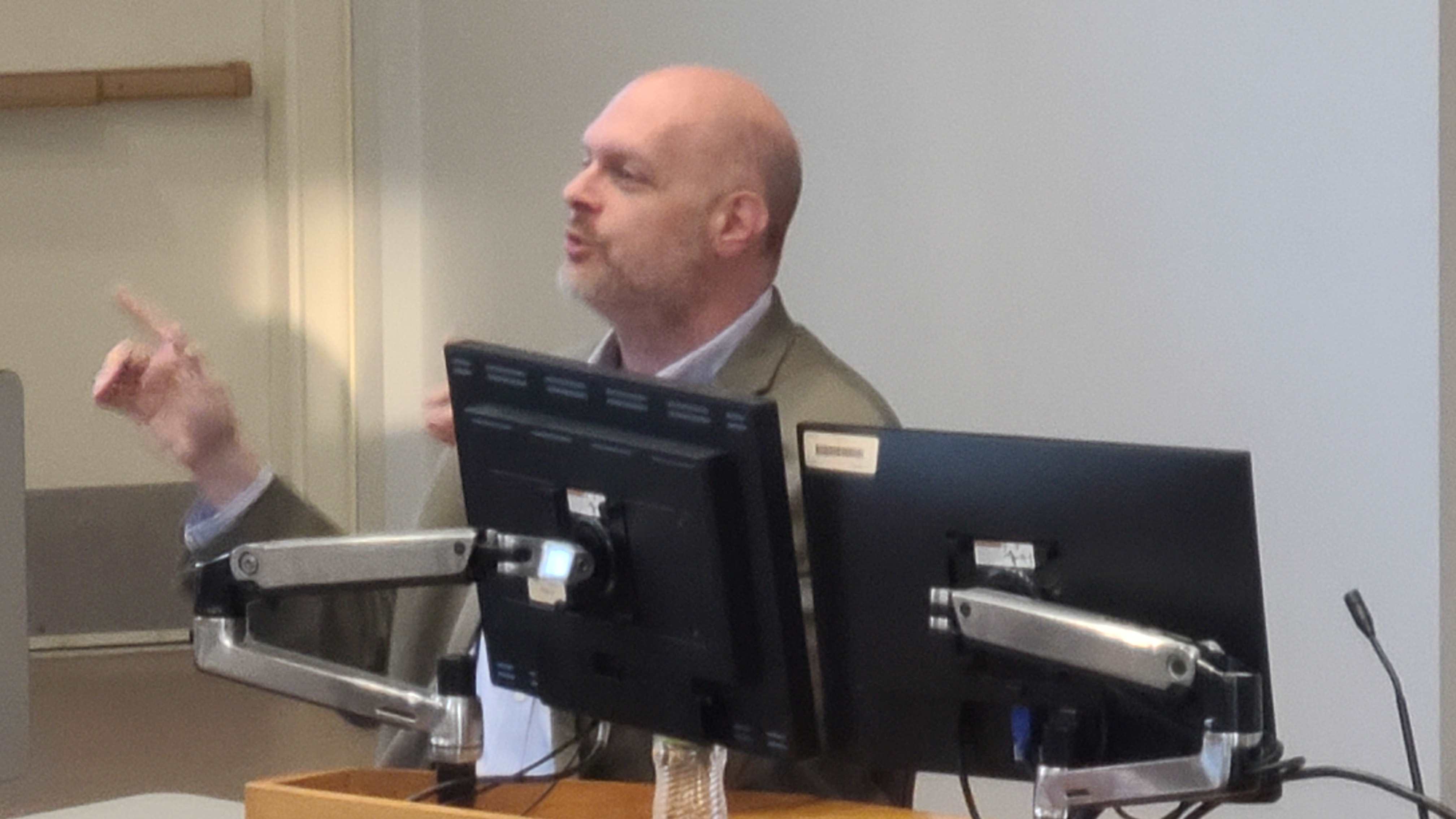 |
|
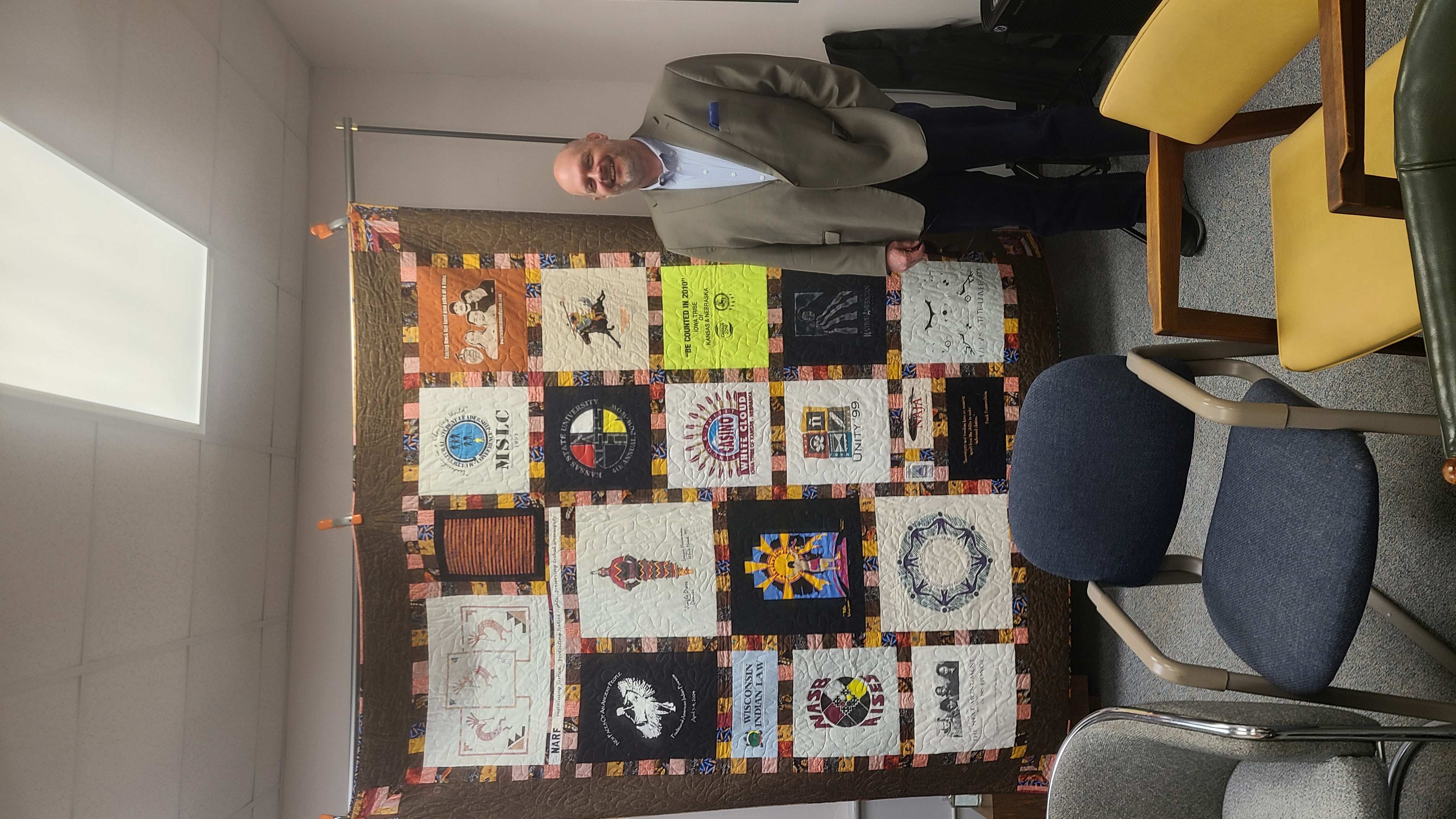 |
Dan Lewerenz of the Iowa Tribe of Kansas with quilt by Debby Ebke |
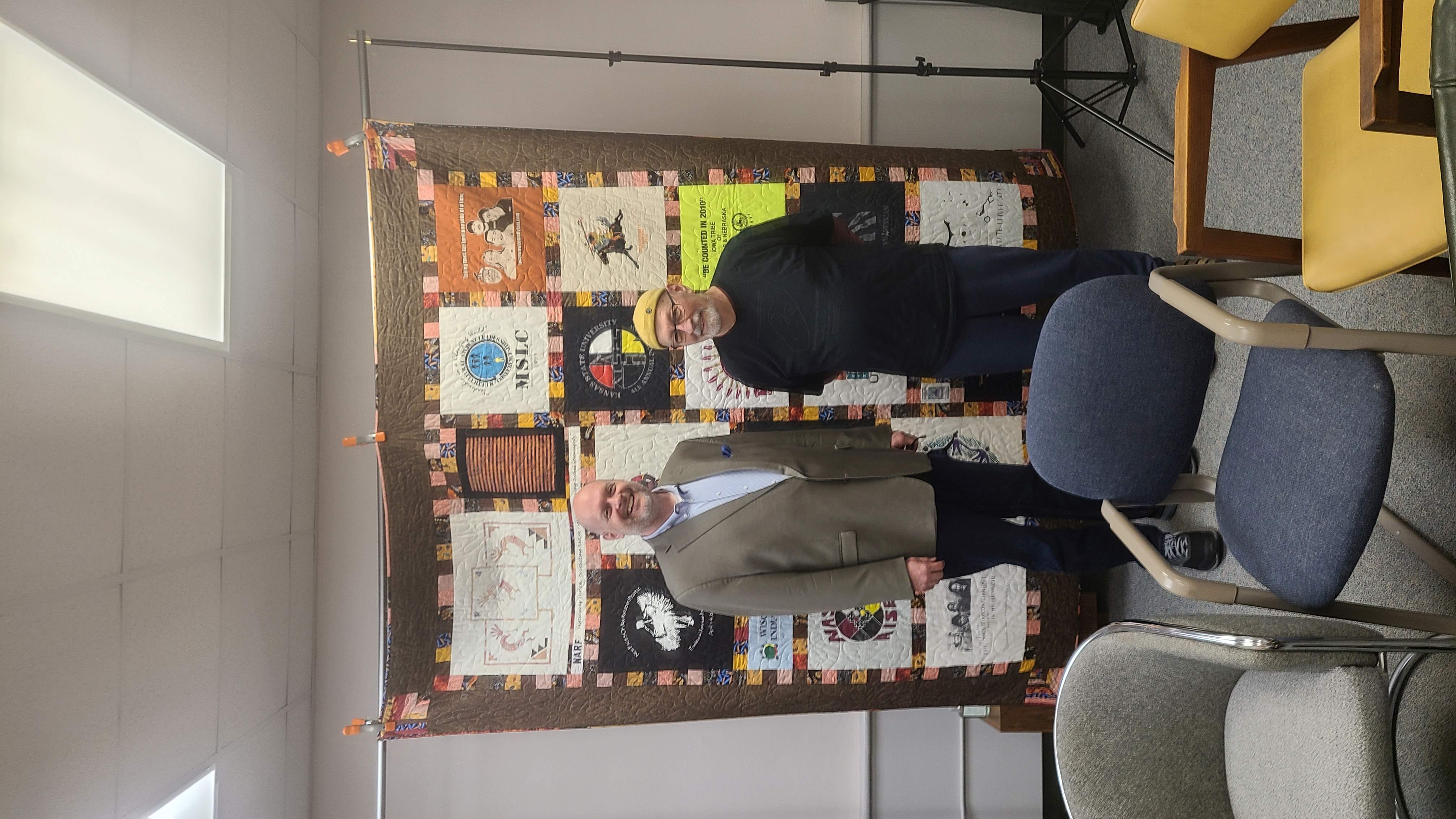 |
Dan Lewerenz Jim Hamilton with quilt by Debby Ebke |
Oct. 16-18 Library AI symposium panel "AI and Data Ownership: Navigating the Ethical Labyrinth" with (left-right) Jack Himelright, Camila Hernandez-Flowerman, Roger McHaney and JT Laverty.
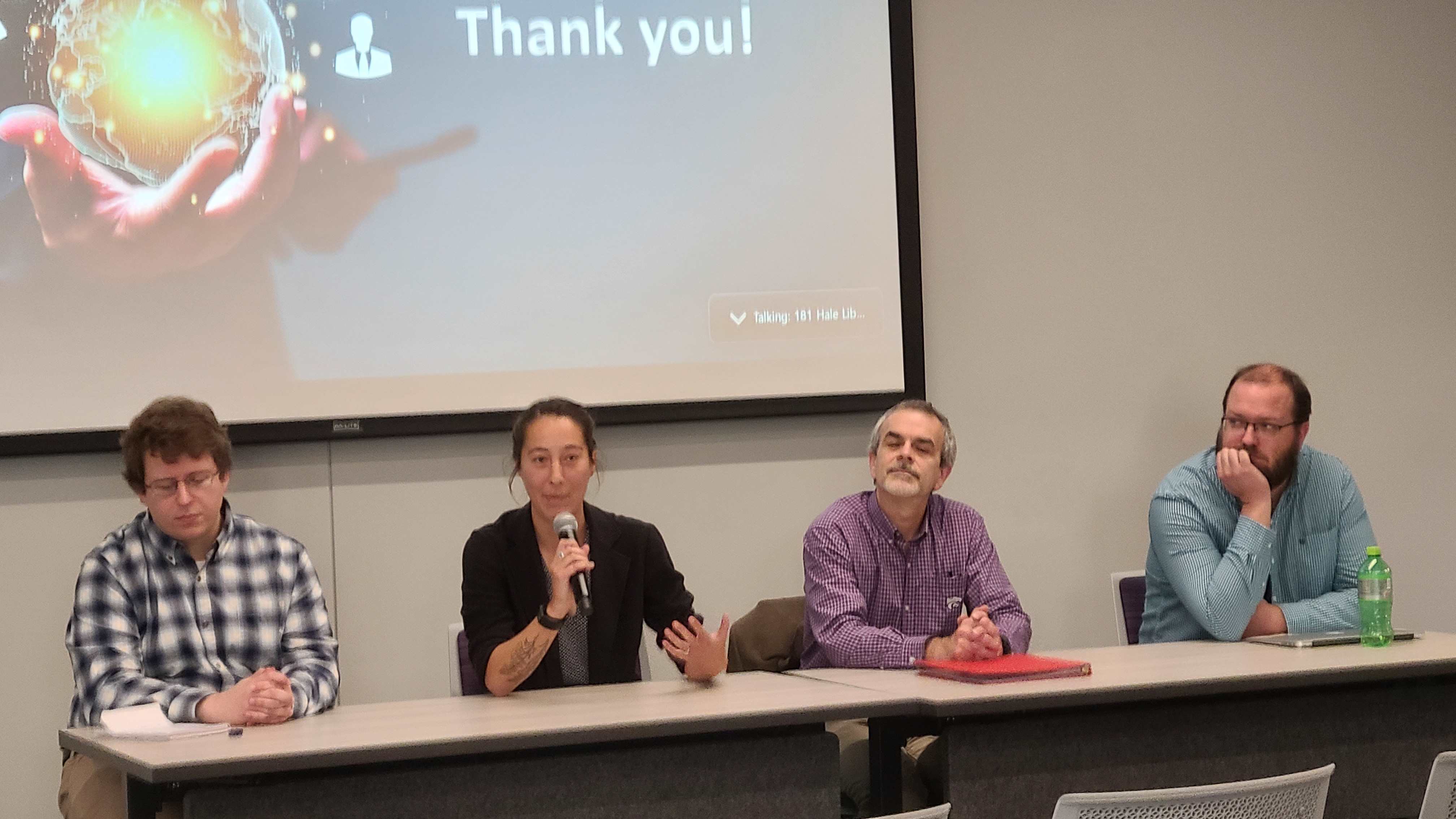
Congratulations to Austin Kruse on his Phi Kappa Phi fellowship! Austin will be employing his philosophical skills at beginning this fall. We'll miss his presence at Rationalitea—Northwestern doesn't know how lucky they are (yet)!
Professor Jon Mahoney wins Faculty Development Award
Professor Jon Mahoney has won an Faculty Development Award to support travel to North Macedonia. While there, Jon will deliver a keynote address on "Illiberalism and Religious Freedom" at the First World Conference for Religious Dialogue and Cooperation in October, 2023.
Two major contributions to the Tilghman fund
The Department is pleased to announce two contributions to the Tilghman Fund. The Tilghman fund was established in honor of Ben Tilghman, in 2016 by Patrick McFadden, an alumnus and student of Ben Tilghman’s, and Patrick’s wife, Elaine Frangedakis. The fund supports research by faculty and undergraduates, especially in aesthetics and Wittgensteinian philosophy of language, the fields in which Ben worked. We have just recently received a $10,000 gift from Patrick and Elaine, continuing their decades long support of Philosophy at Kansas State. Ben and his wife Marilyn have, since Ben’s retirement, also generously supported the department and it students. Continuing that tradition, Ben’s family has made a $10,000 gift to the Tilghman fund. Beyond the scholarships, talks and conference presentations underwritten by the Tilghman fund, we were able in 2019 to host an aesthetics conference—Aesthetics on the Prairie—in Ben’s honor. These two contributions will go a long way toward underwriting another such, providing our students a greater exposure to philosophers working at the forefront of those philosophic traditions closest to Ben’s heart. And they will underwrite our continued efforts to keep our financially struggling students enrolled to completion of their philosophy degrees. We are immensely grateful to Partick, Elaine and the Tilghman family for support and good wishes. Thank you one and all!
Ben Tilghman, In Memorium
The Department of Philosophy is deeply saddened to report the passing of Professor Emeritus and former Head, Ben Tilghman.
 Benjamin Ross Tilghman was born in St. Louis, Mo. in 1927. He received his BA degree from Washington University in 1950 and his MA degree in 1954. His Ph.D. is from the University of Washington. He taught at Reed College, Western State College of Colorado, the University of Wyoming, and from 1967 to his retirement in 1994 at Kansas State University. He was department head there from 1967 to 1980, establishing and building the Department’s strong research reputation.
Benjamin Ross Tilghman was born in St. Louis, Mo. in 1927. He received his BA degree from Washington University in 1950 and his MA degree in 1954. His Ph.D. is from the University of Washington. He taught at Reed College, Western State College of Colorado, the University of Wyoming, and from 1967 to his retirement in 1994 at Kansas State University. He was department head there from 1967 to 1980, establishing and building the Department’s strong research reputation.
Ben is survived by his wife of 70 years, Marilyn, a son, Ross, a daughter, Carla, and three grandchildren.
Ben’s interest in the philosophy department and its students at Kansas State University was everlasting. He often contributed to a fund for scholarships for students, called the “Tilghman Excellence Fund,” set up in Ben’s name by several former students. And significantly, he was instrumental in helping faculty establish, explore, and excel in their philosophical interests.
While at the University of Washington he was introduced to the philosophy of Ludwig Wittgenstein whose conception of philosophy continued to be the primary influence on this work. His interests were largely in aesthetics and the philosophy of art although he has “dabbled” (his word) in philosophy of religion, humorous philosophical short stories, and translations of works in French literature. Those who knew Ben will miss his keen intellect, curiosity, and wit.
His major publications include But is it Art? (1984), Wittgenstein, Ethics and Aesthetics (1991), An Introduction to the Philosophy of Religion (1993), The Expression of Emotion in the Visual Arts (2012), and Reflections on Aesthetic Judgment (2017). He was also author of numerous essays exploring Wittgenstein’s conception of philosophy and its indirect influence in aesthetics.
CARNAP strikes again!
Graham Leach-Krouse's CARNAP framework for logic and formal language training is in the news again, having just been named one of the best 21 open-source Haskell projects by Serokell. You can read about their review here: https://serokell.io/blog/best-haskell-open-source-projects.
Recurring Events
Rationali-tea:
During the Fall and Spring semesters, we meet (almost) every Thursday at 3:30pm, in Dickens 201 for Rationali-tea. Drink tea/coffee, eat cookies, and chat with faculty, staff, and students from the philosophy department. All are welcome!
For the most recent department newsletter, Philosophy Dept Newsletter June 2022.
